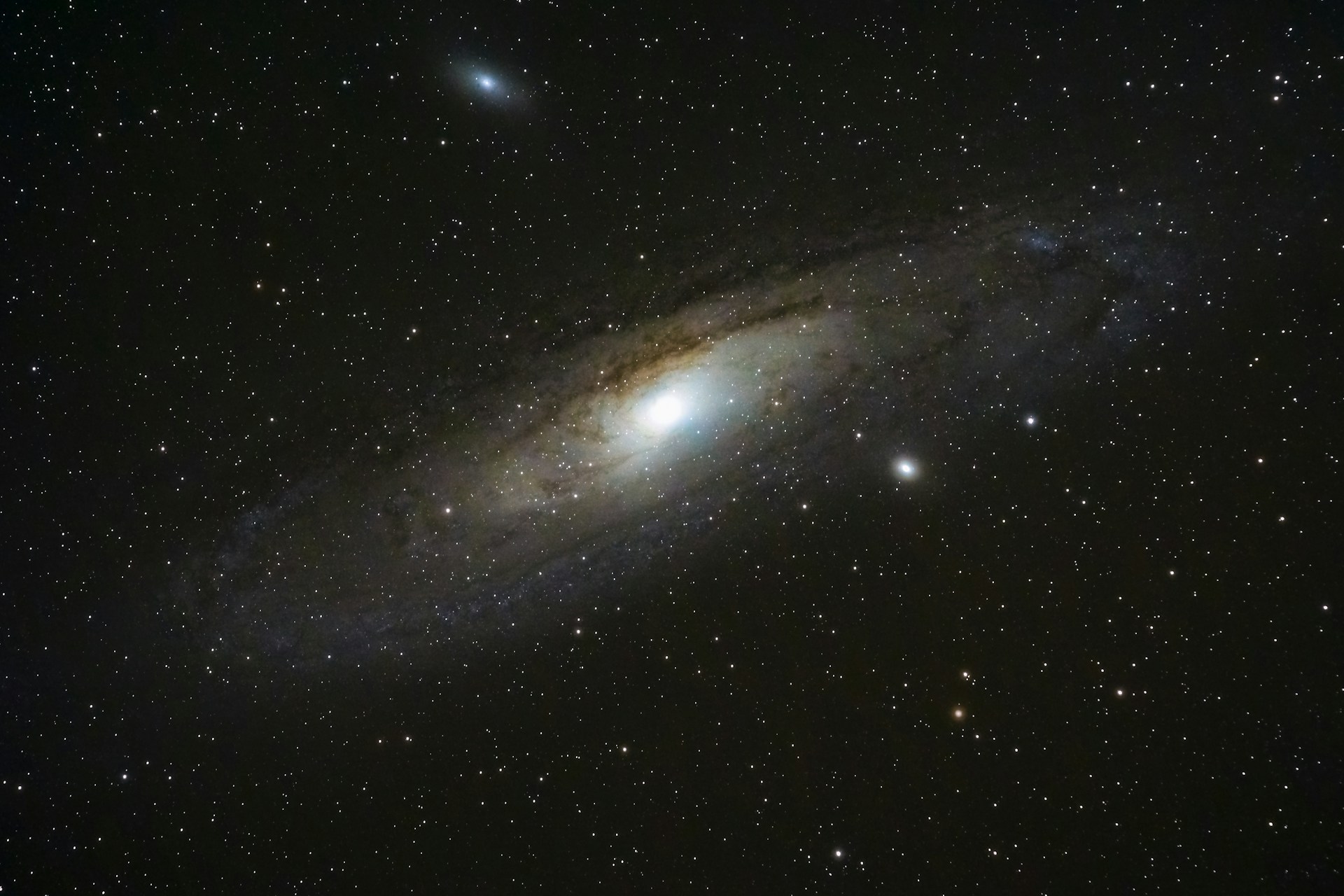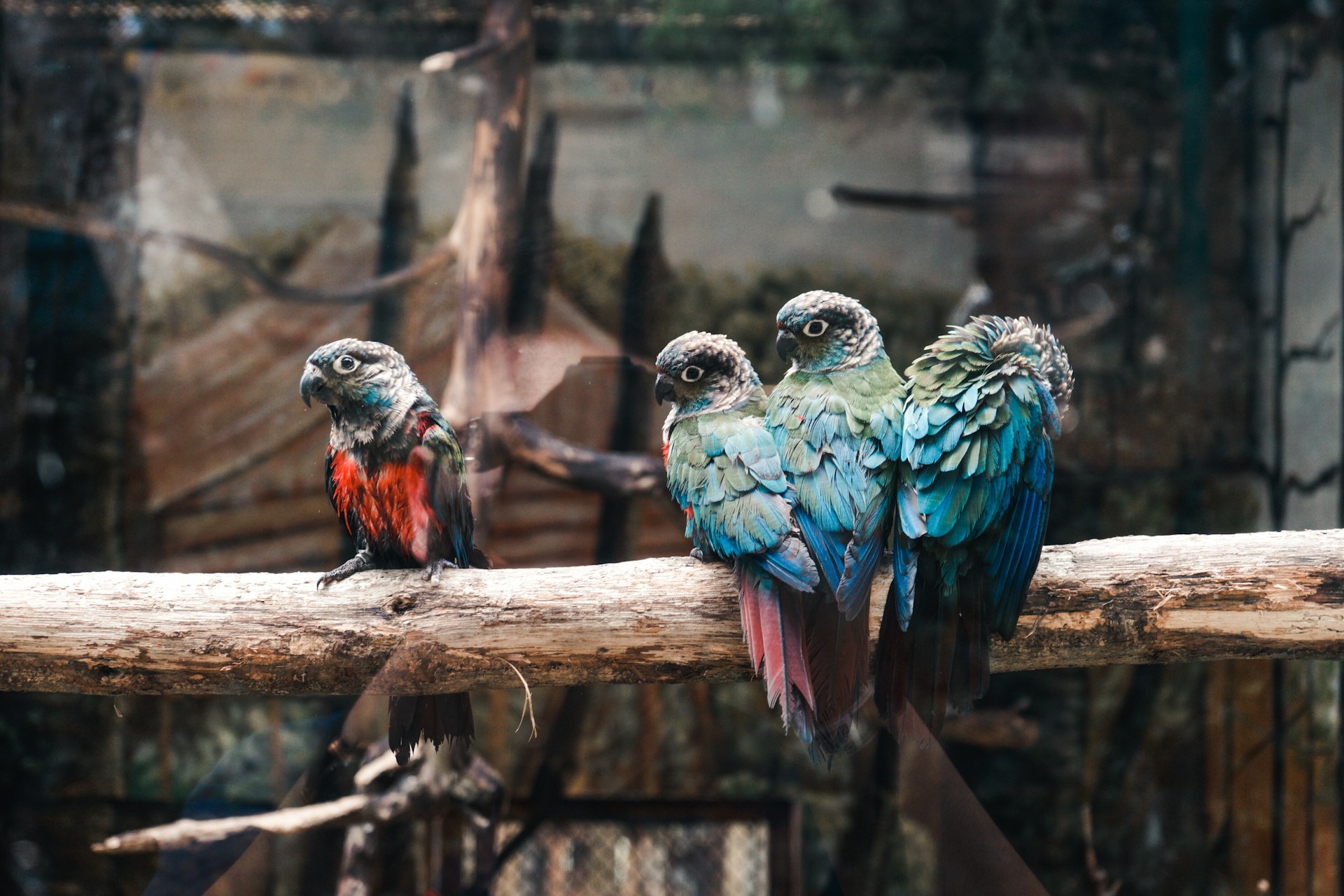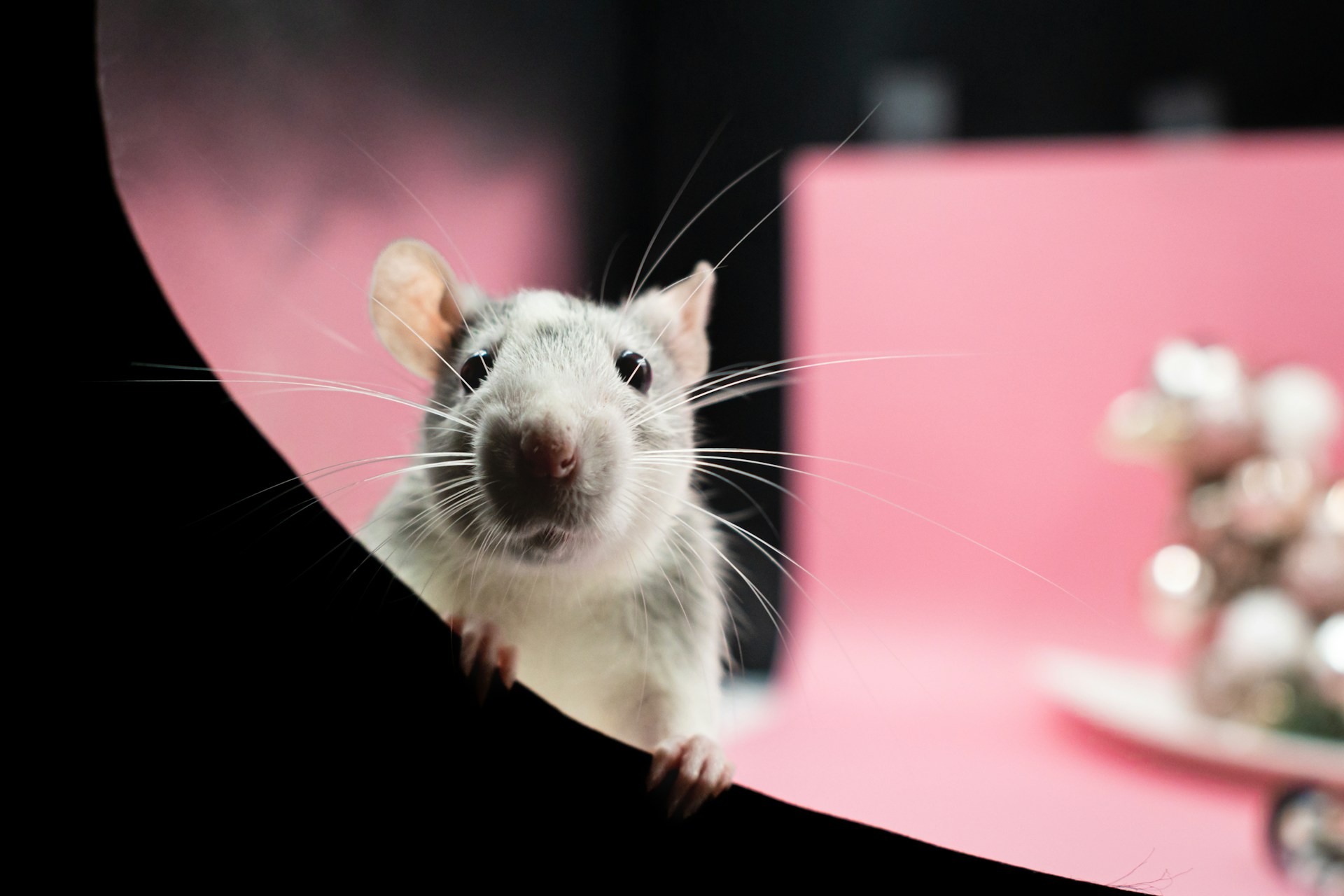Samantha Harvey’s new novel Orbital humanises space exploration, bridging fiction and facts. Photo credit: Bryan Goff on Unsplash
Orbital, Samatha Harvey’s most recent novel, has truly taken the literary world by storm. Set over the course of a single day on the International Space Station (ISS) and following the thoughts and lives of the six astronauts (and cosmonauts) on board, the book was the first of Harvey’s to catapult her to fame, receiving the Booker Prize 2024 and being the first Booker winner to top the UK bestselling charts within the first week of its release. The book is a must read for space enthusiasts, and those who haven’t thought about space since childhood. Harvey spoke on the final day of the Oxford Literary Festival 2025 to a packed Sheldonian Theatre with people coming from across the city to get an insight into the process of writing such a unique and thought-provoking novel.
…a must read for space enthusiasts, and those who haven’t thought about space since childhood.
The talk began with the question on everyone’s minds—why choose to write about space? Harvey, who spoke with a whimsical energy, expressed that in fact she had no dreams of going to space, but instead had always been interested in what astronauts had to say when they returned to Earth. She especially wanted to investigate their thoughts about the beauty of Earth and the views of the planet from space. This is reflected in the book, which is filled with breathtaking imagery and descriptions of views out the space station window.
Although written by neither an astronaut nor space expert, the book is in some respects brutally scientific. Harvey spent months researching every aspect of the book: reading astronauts’ autobiographies, trawling through the NASA and ESA websites, and even reading a portion of the ISS maintenance manual, so that she could ensure that the science in the book was accurate. This is part of what appeals about the book, the correctness of the science. The true orbital paths are followed, the experiments performed are real, even the meals they eat are all accurate to science. Yet at the same time the book captures the melancholic energy of Harvey herself, bringing her own voice to the book and using space as a backdrop to human life rather than a purely scientific topic. She mentioned that she chose to write about space as just another living environment for humans. Harvey enjoys exploring areas outside her own experience through her writing—choosing the ISS as a backdrop for this most recent novel is another adventure into her unknown but remaining firmly within the world of literary realism. The concept is intriguing; sci-fi books explore space all the time, but this exploration of space realism is one of the first of its kind, and the genre seems to be a hit.
The conversation turned to the topic of trespassing when writing the novel. Harvey discussed feelings of trepidation during the initial writing process. Not so much that astronauts would get upset if she wrote about the space experience without having lived it herself—people wrote books all the time about times and places they have never been—but if she did write about space, who would want to read it? Astronauts themselves write books when they return from their missions. They know what it’s really like to be in space. So, who would want to read her work of pure fiction? She even stopped writing the novel for a bit, convinced it wouldn’t do well. But no other ideas seemed to stick, none seemed to evoke this electric energy she said she felt in her prose when writing Orbital, so she returned to the idea and finished the book.
The simultaneous claustrophobia of living within the walls of the station and agoraphobia of floating in the vastness of space, and the paradox of overwhelmingly missing their families but not wanting to trade the experience for anything.
Throughout the writing process one thing became apparent to her: astronauts, she mused, are just humans too. There can be a kind of omnipotent, Father Christmas-like essence about astronauts, as though they are not quite real. In reality, they are simply just incredibly adaptable humans, and the book conveys this perfectly. Melding together the scientific practicalities of living in space—the deterioration of the human body and the practicalities of eating meals and showering in zero gravity—with the human emotions that at are experienced by the astronauts. The simultaneous claustrophobia of living within the walls of the station and agoraphobia of floating in the vastness of space, and the paradox of overwhelmingly missing their families but not wanting to trade the experience for anything. An audience member asked her about what she thought was going through the minds of Suni Williams and Butch Wilmore, the NASA astronauts that were stuck on the ISS for 9 months after a scheduled 8-day mission. Harvey said she thought they were thrilled. She had spent hours talking to astronauts, reading books written by astronauts, watching videos of them in space, and getting inside their brains—’all astronauts want is to be in space’, she said, ‘they probably loved it’.
The writing of this book comes at a pivotal time in space exploration, with the decommissioning of the ISS set for within the next decade, and the expansion of space travel into the commercial sector. Harvey said she wanted to book to capture the spirit of a ‘prayer to the old age of space travel’, looking back on the Earth as the ISS goes round it for its last few years. We begin to move towards a new era, dominated by commercialisation of space travel, and from an era of international cooperation (as highlighted by the international cast of characters stationed on the ISS within the book and in real life) to one perhaps of exploitation, expanding the trashing of our Earth to the last wilderness that remains to us, as even now we are littering low Earth orbit with space debris.
The cast of characters in the novel—the crew of the ISS—are a plausible combination; two cosmonauts, a NASA astronaut, an ESA representative, and an astronaut from JAXA (the Japanese space agency) alongside a female British astronaut, because, as Harvey said, the work is fiction after all. We are yet to have a female British astronaut aboard the ISS but that is not to say it will never happen. The book explores all their points of view. While we only get enough backstory to make the characters come to life in the single day in their life we get to share, Harvey explained that she learned much about the characters that was not in the novel. She wanted them to be people who got along; the novel is set over a single day, it doesn’t need plot, but simply to capture the essence of their life in space.
Cooperation is a key theme. It is highlighted how the Russians are supposed to sleep in the Russian quarters and the rest in the US quarters; how they must use the correct bathrooms and eat the food from the right areas. But these rules are disregarded by the crew. Instead, they share food, do joint experiments, and talk about the similarities in their upbringings continents apart. Looking down on the world, country borders become invisible and the Earth is one. Videos Harvey watched of Earth from low Earth orbit realised this and it was a theme she wanted to explore.
Looking down on the world, country borders become invisible and the Earth is one.
Orbital traverses such a wide range of topics in just 136 pages, from science to psychology, all mixed within the elegant prose and imagery characteristic of Harvey’s writing. It truly is a fascinating read and a deserving winner of the Booker 2024.





